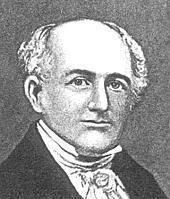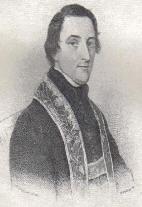Planning worship?
Check out our sister site, ZeteoSearch.org,
for 20+ additional resources related to your search.
- |
User Links
Person Results
‹ Return to hymnal


Export as CSV
John Henley
1800 - 1842 Person Name: J. Henley Hymnal Number: d8 Author of "Children of Jerusalem sang the praise" in Rohr's Favorite Catholic Melodies Born: March 18, 1800, Torquay, Devonshire, England.
Died: May 2, 1842, Weymouth, England.
Henley, John, born at Torquay, March 18, 1800; engaged for some years in circuit work as a Wesleyan minister; and died at Weymouth, May 2, 1842. His well-known and popular children's hymn for Palm Sunday, "Children of Jerusalem," appeared in the Wesleyan Sunday School Tune Book, in J. Curwen's Hymns & Chants, 1844, and in many modern collections for children. Orig. text in the Methodist Sunday School Hymn Book, 1879.
-- John Julian, Dictionary of Hymnology
John Henley
William Dodd
1729 - 1777 Hymnal Number: d21 Author of "Grateful notes and numbers bring" in Rohr's Favorite Catholic Melodies William Dodd (29 May 1729 – 27 June 1777) was an English Anglican clergyman and a man of letters. He lived extravagantly, and was nicknamed the "Macaroni Parson". He dabbled in forgery in an effort to clear his debts, was caught, convicted, and, despite a public campaign for a Royal pardon, became the last person to be hanged at Tyburn for forgery.
Dodd was born in Bourne in Lincolnshire, the son of the local vicar. He attended Clare Hall in the University of Cambridge from 1745 to 1750, where he achieved academic success and graduated as a wrangler.[1] He then moved to London, where his spendthrift habits soon left him in debt. He married impulsively on 15 April 1751, to Mary Perkins, daughter of a domestic servant, leaving his finances in an even more precarious position.
At the urging of his concerned father, he decided to take holy orders, and was ordained a deacon in 1751 and a priest in 1753, serving as a curate in a church in West Ham, then as a preacher at St James Garlickhythe, and then at St Olave Hart Street. He became a popular and fashionable preacher, and was appointed as a chaplain in ordinary to the King in 1763. He became a prebend in Brecon, and was a tutor to Philip Stanhope, later 5th Earl of Chesterfield. He became chaplain to the King, and became a Doctor of Laws at Cambridge University in 1766. After he won £1,000 in a lottery, he became involved in schemes to build the Charlotte Chapel in Pimlico, and bought a share of the Charlotte Chapel in Bloomsbury. Despite his profession, he continued his extravagant lifestyle, and became known as the "maccaroni parson". In 1772, he became rector of Hockliffe, in Bedfordshire, and vicar of Chalgrove
In 1774, in an attempt to rectify his depleted finances, he attempted to obtain the lucrative position of rector of St George's, Hanover Square. He wrote a letter to Lady Apsley, wife of the Lord Chancellor, offering her £3,000 to secure the position. The letter was traced back to Dodd, and he was dismissed from his existing posts. He became an object of public ridicule, and was taunted as Dr Simony in a play by Samuel Foote in the Haymarket Theatre. He spent two years abroad, in Geneva and France, while the scandal subsided. He returned to England in 1776. In The Luck of Barry Lyndon Thackeray has his protagonist refer to meeting 'Dr Simony' in Soho and to a friendship with Foote.
In February 1777, he forged a bond for £4,200 in the name of his former pupil, the Earl of Chesterfield, to clear his debts. A banker accepted the bond in good faith, and lent him money on the strength of it. Later the banker noticed a small blot in the text and had the document re-written. When the clean copy was presented to the Earl to sign, in order to replace the old one, the forgery was discovered. Dodd immediately confessed, and begged time to make amends. He was, however, imprisoned in the Wood Street Compter pending trial. He was convicted, and sentenced to death (see the full record of the trial under External References below.) Samuel Johnson wrote several papers in his defence, and some 23,000 people signed a 37-page petition seeking a pardon. Nevertheless, Dodd was publicly hanged at Tyburn on 27 June 1777.
He wrote several published works, including poems, a novel, and theological tracts. His most successful work was The Beauties of Shakespeare (1752). He also wrote a Commentary on the Bible (1765–1770), and composed the blank verse Thoughts in Prison while in Newgate Prison between his conviction and execution.
--en.wikipedia.org/wiki/
William Dodd
Abner Kneeland

1774 - 1844 Hymnal Number: d56 Author of "Strike the cymbal, roll the tymbal [timbrel]" in Rohr's Favorite Catholic Melodies Kneeland, Abner, born in 1774, was noted for his religious changes, most of which may be traced through his hymns. He contributed 147 pieces to the American Universalist's Hymns composed by different Authors, 1808; and also edited The Philadelphia Hymn Book, 1819, and Hymns for the Use of those who are Slaves to no Sect, in 1834. In 1836 he underwent a trial at Boston for blasphemy. He died in 1844.
--John Julian, Dictionary of Hymnology, Appendix, Part II (190
==============================
Kneeland, Rev. Abner. (Iowa, 1774--1844, Salubria, Iowa). A Universalist miniter, one of the editors of the collection Hymns composed by different Authors, by order of the General Convention of Universalists of the New England States, 1808, to which he contributed 138 hymns, of poor quality. He resigned from the Universalist ministry in 1829 and became lecturer to a society of Freethinkers in Boston, and began publication of a periodical called the Investigator. In 1833 he was indicted on a charge of blasphemy and served a prison sentence. On his release he returned to Iowa, then a territory, and established a free-thinking colony which he called Salubria. His hymn beginning "Mediator, Son of God" is included in Church Harmonies: New and Old, 1895.
--Henry Wilder Foote, DNAH Archives
Abner Kneeland
Charles Constantine Pise

1802 - 1866 Hymnal Number: d18 Author of "St. Rose of Lima" in Rohr's Favorite Catholic Melodies Pise, Charles Constantine, was born in 1802 at Annapolis, Md., graduated at Georgetown, D.C., and was ordained in 1825. He was for some time attached to St. Patrick's Church, Washington, and while there, was, by the influence of Henry Clay, appointed chaplain to the U.S. Senate, the only time the post has ever been held by a Roman Catholic. In 1849 he became Rector of the Church of St. Charles Borromeo in Brooklyn, N.Y., and died at Brooklyn, May 26, 1866. Two hymns by him are in the Appendix to the N.Y. edition of E. Caswall's Lyra Catholica (1851, pp. 422, 427), and are repeated in Hymns for the Year 1867, viz.:—
1. First flow'ret of the desert wild. S. Rose of Lima.
2. Let the deep organ swell the lay. S. Cecilia.
[Rev. James Mearns, M.A.]
--John Julian, Dictionary of Hymnology, New Supplement (1907)
Charles Constantine Pise
J. G. Seidenbush
1641 - 1729 Hymnal Number: d36 Author of "O all ye people God hath made, sing glory" in Rohr's Favorite Catholic Melodies Seidenbusch, Johann Georg, was born at Munich, April 5, 1641, ordained Priest in 1666; founded the Oratory of St. Philip Neri at Aufhausen, and d. Dec. 10, 1729. He edited the Aufhausen Gesang-Buch, 1687, in which is given:—
Kommt her, ihr Creaturen all [Holy Communion], p. 62, which Bäumker, iii., No. 57, thinks is most likely to be his. It is in many later books, including H. Bone's Cantate, ed. 1879, No. 277. Translated as "Come all ye creatures of the Lord," by G. R. Woodward, in his Songs of Syon, 1904. [Rev. James Mearns, M.A.]
--John Julian, Dictionary of Hymnology, New Supplement (1907)
J. G. Seidenbush
Edward Sourin
Hymnal Number: d37 Author of "O blest forever [fore'er] the mother" in Rohr's Favorite Catholic Melodies
Edward Sourin
J. Richard Beste
1806 - 1885 Person Name: J. Beste Hymnal Number: d50 Author of "Aspirations after communion" in Rohr's Favorite Catholic Melodies Full name: John Richard Digby Beste
J. Richard Beste
R. Maitland
Hymnal Number: d2 Author of "As the dewy shades of even" in Rohr's Favorite Catholic Melodies
R. Maitland


 My Starred Hymns
My Starred Hymns


